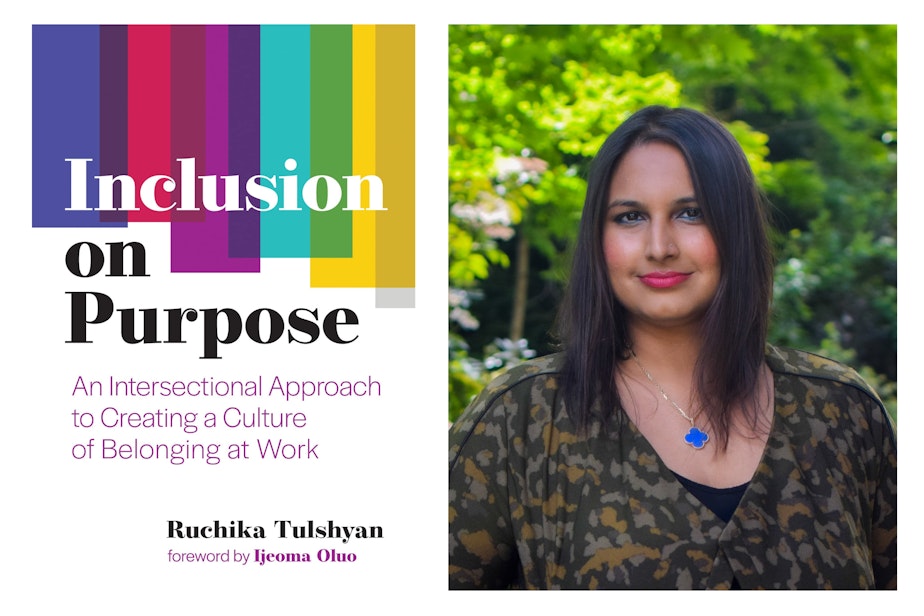DEI ’R’ US: Setbacks and progress on the road to belonging at work

Many organizations around the United States now have Diversity, Equity, and Inclusion (DEI) training programs. The thorny issues brought up in these sessions are far from easily fixed. And there are limits to what DEI experts can do when they parachute into an organization. It’s on all of us to play a part in potential outcomes, which vary from harm to progress. A new book points to the ways we can choose to play those roles.
Ruchika Tulshyan is the author of Inclusion on Purpose: An Intersectional Approach to Creating a Culture of Belonging at Work. Her work points to the attention, effort, and practice it takes to achieve diversity, equity and inclusion in organizations. Spoiler alert: Tulshyan says we’re not doing a great job. She begins by asking why that is.
Tulshyan focuses her book on the intersection of gender and racial bias as experienced by women of color in the workplace. She points to the benefits of exposing and dismantling structural bias, outlining how women of color have more to lose by speaking up. And she explores the importance of psychological safety in the workplace, saying employees need to know their organization has their back.
Leadership plays an important role in this dynamic work, but so do individuals at all levels of organizations, with all levels of understanding of structural racism. This conversation approaches its complex subject with seriousness, humor, and an eye toward solutions. It’s an informative discussion and launch pad for continued work.
Some of the questions addressed include: How do we have conversations about equity with people who think they cannot be guilty of perpetuating harm?; What does safety look like in a space where you’re trying to increase inclusion?; and how much of corporate DEI work should be trauma-informed?
Ruchika Tulshyan is the founder of Candour, an inclusion strategy firm. She is interviewed here by author Ijeoma Oluo, who wrote the forward to Inclusion on Purpose. Town Hall Seattle presented their conversation on March 1, 2022.
Please note: This recording contains unedited language and themes of an adult nature.


